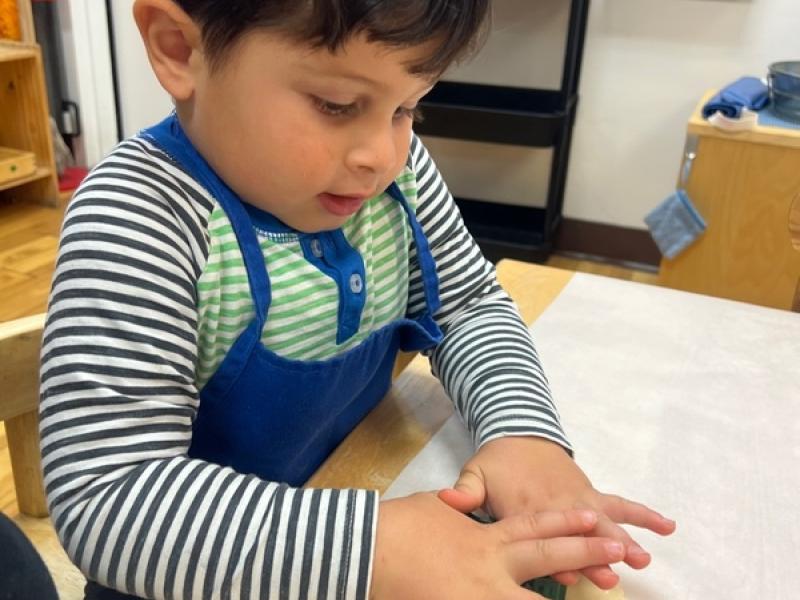In the Montessori philosophy, having meals with family holds great significance for toddlers, as it nurtures their holistic development respectfully and naturally. Here’s why this is important, explained in a Montessori-inspired approach:
1. Building Independence
- Participation in Routine: Meals are an opportunity for toddlers to practice independence, such as setting the table, serving themselves, and using utensils.
- Learning through Observation: By observing family members, toddlers internalize how to handle food, table manners, and the rhythm of meals.
- Encouraging Choice: Allowing them to decide what and how much to eat fosters autonomy and self-regulation.
2. Fostering Connection and Belonging
- Family Bonding: Shared meals provide a consistent time for emotional connection, making toddlers feel secure and valued as part of the family.
- Modeling Social Behavior: Toddlers learn conversational skills, turn-taking, and gratitude through natural interactions at the table.
3. Promoting Sensory and Cognitive Development
- Exploration of Food: Meals expose toddlers to different tastes, textures, and colors, enhancing sensory development.
- Learning Practical Life Skills: Pouring water, spreading butter, or peeling a banana during meals teaches coordination and problem-solving.
4. Respect for the Child
- Child-Sized Tools: Providing child-friendly utensils and a booster seat or low table respects their physical needs and encourages participation.
- Acknowledging Efforts: Encouraging a toddler's contributions during mealtime builds their confidence and sense of competence.
5. Instilling Healthy Eating Habits
- Mindful Eating: Sitting together allows toddlers to experience meals as a time for calm and focus, rather than rushing or eating while distracted.
- Exposure to Variety: Seeing family members eat a range of foods encourages toddlers to be open to trying new things.
Montessori Tips for Family Mealtime:
- Involve toddlers in meal preparation, such as washing vegetables or stirring ingredients.
- Provide a predictable mealtime routine to give toddlers a sense of order and security.
- Use simple, clear language to engage them in conversations.
- Be patient with spills and mistakes, viewing them as learning opportunities.
By creating a warm, inclusive, and child-friendly mealtime environment, families embody Montessori principles of respect, independence, and community, supporting toddlers' natural development.


